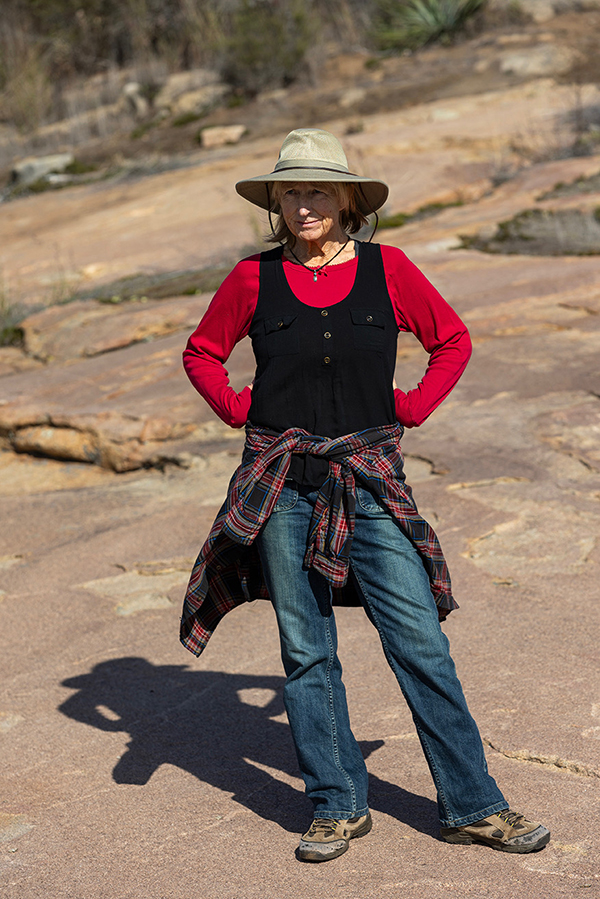“Will I be creative and contribute to the development of the next generation, or will I be stuck in a self-centered rut?”
It’s a great question—one that I took from Waldinger and Schulz’s book, The Good Life. And I think we all know, deep down inside, that true happiness does not come from getting more new stuff for ourselves, or looking ‘better’ than someone else. It really does stem from our altruistic involvement with others—whether they be people, animals, land, or plants. And I’m trying to keep this in mind as I proceed into 2024.
How many of us have a true connection to the land around us? The dirt underneath where we live? The surrounding mountain ranges? The eclectic boulders that grace our Ramona valley? The quail scuttling through the fragrant sagebrush? The list is endless, but meaningless if we don’t take heart and continue to be grateful for our sacred planet earth. And learn to take care of this amazing gift.
I’m aspiring to be more conscientious every day as I try to lessen my personal negative impact on the natural world. Small things like eating and buying responsibly, recycling, leaving no trace, leaving things better than I found them, purchasing used items when possible—and not so much plastic. The reasons behind these behaviors are well documented.
At what point do we realize that we have enough? I think, often, when it’s too late. The more we have, the more we have to keep track of, and the stress of it all can snowball. Too much versus not enough. The key is balance, and to remember to be grateful.
Another book which I’ve been enjoying is Braiding Sweetgrass by Robin Wall Kimmerer. She brings up the importance of reciprocity. Bartering can be a form of reciprocity, as can buying produce from a local farmer. We are giving as we are taking. The lines get blurred when we purchase non-renewables from big box stores, or online from mega companies with complicated delivery systems. Yes—supposedly everyone is getting paid, but not all are compensated fairly for their efforts. And how might we thank the natural resources from which the products were made in the first place—so many, many steps before? If we bulldoze a pad for our future home without somehow giving back to the land itself, or getting involved with replanting native species, it creates an imbalance of reciprocity. The circle of giving and being grateful can benefit the well-being and longevity of our earth and each one of us who depend on it. It’s just more rewarding to be mindful of our actions.
My gratitude extends exponentially for the privilege of feeling nestled in my rural home amidst the natural habitat of the canyon. I not only have roots here, but this land has a strong hold on me. It can be hard to pull myself away, but also important for my perspective. Whether it be to take my granddaughter to ballet in Balboa Park, trips to the desert to hike desolate trails, vacations to visit distant relatives—they can serve to further my appreciation of this place as well as bring new ideas that might be beneficial here.
I’ve had a recurring dream throughout my adult life where I’ve sold our place, and people who don’t seem to appreciate it are living here. I’m gut-punched and sick-to-my-stomach that I’ve let this happen. And I’m forever miserable. So, when someone says that I have this “asset,” it’s not that at all. I can never sell it. This is crystal clear to me. I am a steward to this land and forever in its debt.
My New Year’s resolution is to practice more gratitude—every moment, every day—to infinity and beyond!
Chi Varnado has published six books including fiction, nonfiction and children’s books. They are available on www.amazon.com. Her collection of essays, Quail Mutterings, can be found on www.chivarnado.com or www.dancecentrepresents.com.

